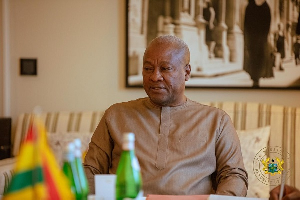Recent incidents of violence against law enforcement officials in Ghana have sparked widespread concern and raised questions about the country's security services' effectiveness. In separate events, two police officers were shot by unidentified assailants at Trassaco, and another military officer was targeted in his vehicle, allegedly over a land dispute. The assailant claimed to be affiliated with national security, a claim that the security service has denied.
These incidents have reignited debates about the safety and security of Ghana's citizens and institutions. With such bold attacks occurring, citizens are rightfully questioning the nation's safety. The situation in Bawku further exacerbates these concerns, highlighting the need for urgent action.
The central question now is whether Ghana's security systems are adequately equipped to protect its citizens and maintain law and order.
The security service's denial of involvement in the alleged attack on the military officer underscores the situation's complexity. It suggests either a breakdown in communication within the security apparatus or, worse, infiltration by individuals with malicious intent. Whatever the case, it is clear that immediate measures must be implemented to restore public confidence and ensure the safety of all citizens.
Addressing these security challenges requires a multifaceted approach. Firstly, there must be a thorough investigation into the recent attacks, with perpetrators swiftly brought to justice. This not only serves as a deterrent but also sends a clear message that such acts of violence will not be tolerated.
Secondly, there must be a review of existing security protocols and procedures to identify any loopholes or weaknesses that may have been exploited in these attacks. This could involve increased surveillance, improved intelligence-gathering techniques, and better coordination between different branches of the security services.
Furthermore, community engagement and collaboration are essential in preventing future incidents. Building trust and cooperation between law enforcement agencies and the communities they serve can help identify and address potential security threats before they escalate into violence.
Additionally, addressing the underlying socio-economic issues that often contribute to crime and violence is crucial. Providing opportunities for employment, education, and social inclusion can help mitigate the root causes of insecurity and reduce the likelihood of individuals resorting to violence.
In conclusion, the recent attacks on security personnel in Ghana are a wake-up call for authorities to reevaluate and strengthen the country's security infrastructure. By taking proactive measures to address these challenges, Ghana can ensure the safety and security of its citizens and maintain its reputation as a stable and peaceful nation.
Opinions of Saturday, 4 May 2024
Columnist: Nana Kweku Ofori Atta



















